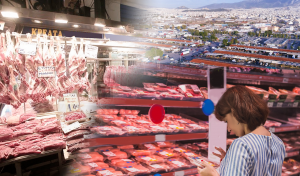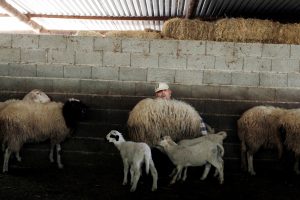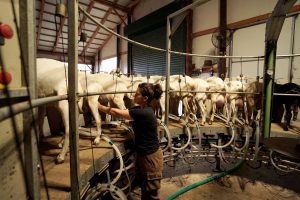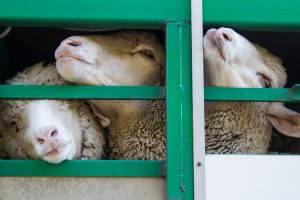A 10-day ban on transporting small livestock due to an outbreak of sheep and goat pox has sparked concern about the livelihood of Greek farmers.
The ban prohibits any movement of herds, whether for slaughter, grazing, or fattening. Authorities imposed this nationwide restriction after detecting sheep pox in northern Greece, with the disease also found in two animals further south, in Magnesia and Corinth prefectures.
Minister of Rural Development and Food, Kostas Tsiaras, emphasized that the disease is highly contagious among animals but poses no risk to humans. He stated, “These diseases have no impact on public health. So the issue – I want to make it clear – is that only our livestock is at risk, so in fact it is a case that concerns the national economy and of course the economic reality of our livestock farmers.”
According to the World Organization for Animal Health, sheep pox and goat pox, also known as “sheep and goat plague”, are viral diseases of sheep and goats characterized by fever, generalized papules or nodules, vesicles (rarely), internal lesions (particularly in the lungs), and death. Both diseases are caused by strains of Capripoxvirus, all of which can infect sheep and goats.
Tsiaras assured farmers that support would be provided. He dismissed concerns about market shortages, stating, “At the moment, there is no such issue, and if we take any measures, it is precisely for this reason—so that there are no shortages, so that there are no price increases, to save our livestock. This is the reason why we are proceeding with measures, which may seem harsh in the first instance, but have been proven to work.”
Earlier this summer, after another outbreak of sheep and goat pox, the government announced compensation for farmers whose animals were culled. However, concerns about financial losses persist, with one Greek MEP calling on the European Commission to provide emergency financial aid of full and immediate compensation for affected breeders.
Some 17,500 sheep have been culled due to the most recent outbreak.








